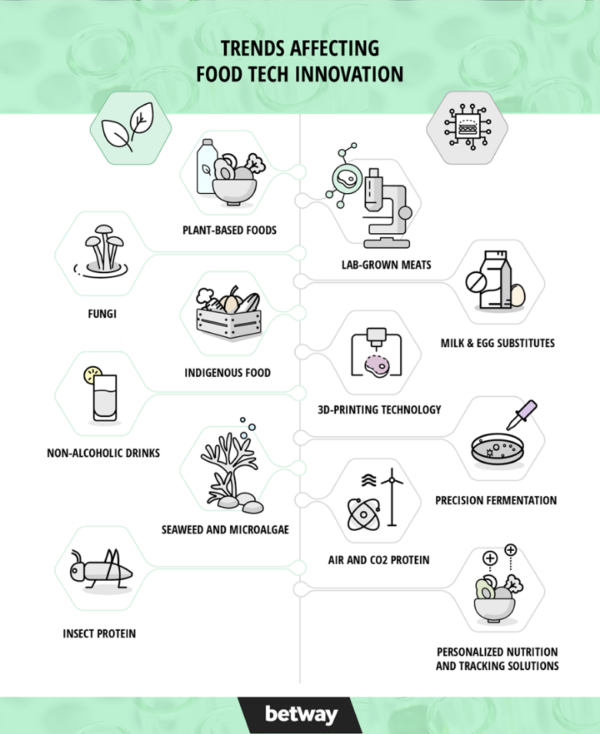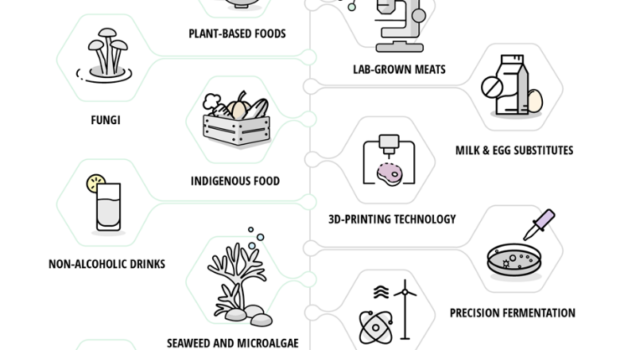Food for The Future: How Technology Will define Eating Habits
Technology is changing not only the way we communicate, but also the way we eat. Social media has shown that food is more than a means to survival. This article is an exploration of how food plays a role in people’s lives and reflects their self-image, backgrounds, and health and fitness habits. I believe that food influences our way of thinking and eating as well as helps us make better, more informed choices.
The TNO believes newest technology will be popular with food manufacturers, retailers and consumers. It will be interesting to see how fast it will usurp the growing dynamic of food trends.
Scientists and futurists insist that the problem of overpopulation and limited resources means that we must rethink what we eat every day. The food industry and rapid technological progress is opening up new perspectives on what we should put on our plates in the future.

Source: Betway Online Casino
How technology is disrupting the food market
The advancement of technology and communication has brought us closer to understanding the food industry, including the methods of acquiring, preparing, and disposing of food. Using technology, we are able to handle, monitor, and analyze our food system, reducing food waste and carbon emissions while feeding the world population with enough food.
You will soon may have a robo-cook in your kitchen that spices up your meals with a 3D food printer that can replace your microwave. 3D printing will reduce waste from conventional cooking. It can be used to promote healthy, high-tech foods, and redefine the way we make recipes.
Food trends we may witness in near future
A number of edible insect burgers, algae meat alternatives, and protein bars are already available in many countries around the world. Some people may loathe the thought of eating insects, but insects are rich in fat, protein, vitamins, fiber and minerals. According to a detailed report by the United Nations Food and Agriculture Organization, 2 billion people consume insects. It remains to be seen what kind of rules will be enforced in different countries with regard to claims for the supply of these types of foodstuffs.
Junk food and food waste pose a challenge
While fast-food companies continue to make inroads in developing countries, consumption of junk food is on the rise in impoverished communities. According to a recent study, such changes in eating habits are the result of an increase in the average height and weight in subsequent generations. Because of that, People will need more food in the future to feed themselves properly than they do today, as they did in previous generations.
Data from the US Department of Agriculture showed that the average American consumed 1,966 pounds (about one ton) of food per year in 2011. With the help of social media and new technologies, 40% of American food waste can be reduced.
Conclusion
By producing food that meets the same desire that people have for meat, we can help to secure food for our children and future generations. We can also help ourselves to develop foods with a higher level of nutrients and flavors, which will help in combating malnutrition. With new technology in farming, Fruits could have more antioxidants that can help our bodies fight disease, and plants will be more resistant to climate change.
















